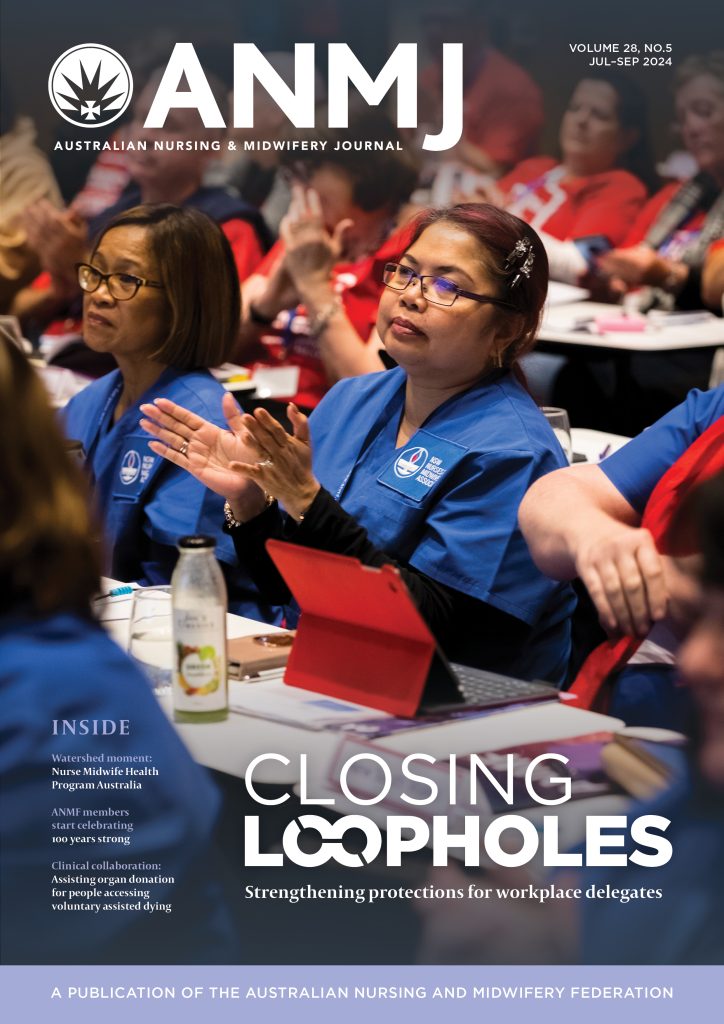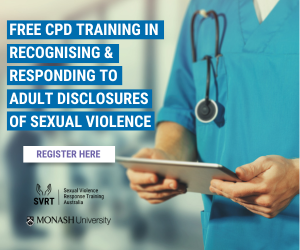Gobsmackingly, the new National Aged Care Advisory Council has been formed without any nursing groups represented.
So, the health minister has announced the composition of the new National Aged Care Advisory Council.
Seventeen members in total.
“Strong representation across five consumer groups including Indigenous, culturally and linguistically diverse, carers and advocacy groups,” Greg Hunt announced.
Well, that must be a tick hey? Indeed, it is reassuring that consumer groups representing people suffering from Alzheimer’s and dementia are there, as are Indigenous and ethnic consumers and more generally, Council on the Ageing.
There is a pharmacist, a speech pathologist and a nutritionist on the council, also extremely reassuring. Then there are at least five of the big, aged care provider CEOs — not surprising. It is important that they are on board with all the reforms required to improve the sorry state of Australian aged care that was reported in some of the accounts to the aged care royal commission.
So far, this membership meets some of the requirements of the recommendation that:
“The minister should appoint an aged care advisory council drawn from all relevant aspects of the aged care system, including people receiving aged care, representatives of the aged care workforce, approved providers, health and allied health professionals, specialists in training and education, and independent experts.”
But mystifyingly, mindbogglingly and gobsmackingly, the key group who is NOT present on this advisory council is those “health professionals” and “representatives of the health care workforce” called nurses!
And this, despite the fact that, under another recommendation from the royal commission, high quality aged care is defined as:
- diligent and skilful care
- safe and insightful care
- caring and compassionate relationships
- empowering care
- timely care
Who except registered nurses would be expected to plan and deliver this?
Similarly, under yet another recommendation, the general duty to provide high quality and safe care requires “approved providers” to ensure that any worker whom it makes available to perform personal care work has the experience, qualifications, skills and training to perform the particular personal care or nursing care work the person is being asked to perform.
So, who except “specialists in nursing care work training and education” are going to be able to provide the advice on this? Once again, only registered nurses. Where is the nursing representation on this council, minister?
I can only imagine two reasons why there are no nurses on the council.
The first (and perhaps my preferred reason) is that they forgot to put us on there. That they inadvertently overlooked us. It seems remarkable, given the prominence of the need for expert nursing care in the aged care royal commission hearings, but perhaps the group determining the membership had forgotten what everyone else seems to have noticed during Covid.
When there is no cure for a disease or condition, and the only way forward is for it to run its course (which is often the case with the chronic and complex diseases of the elderly), skilled professional nursing care makes a huge difference. At the extremes, expert nursing care can make the difference between comfort and pain, between calm and fear, between safety and danger, between understanding and confusion and even between life and death. We have seen this over and over again during Covid and heard it over and over again during the aged care royal commission. But perhaps they forgot us.
The second reason (which I find far less palatable and far more troubling) is that whoever put this council together perhaps made the decision to exclude the nursing voice from this discussion.
There is no doubt that expert nursing care is more expensive than using unqualified carers and that safe staffing requires proper nurse to patient ratios. This was explored in depth during the aged care royal commission.
The Australian Nursing and Midwifery Federation (ANMF) proposed a six-year implementation plan in recognition of the need for time to develop both the numbers and skills of the staff required. The ANMF further proposed that skills development would need to occur in collaboration with the Aged Services Industrial Relations Commission.
Many newly graduated nurses do not secure meaningful employment on completion of their courses, but the poor conditions and impossible workloads in the aged care sector are failing to attract them to positions.
Unless nurses are centrally involved in the development and planning of the aged care nursing workforce, the quality of care in the sector will never be improved. Put as many recommendations as you like together. This group will be talking about nursing care. It’s what we do and it’s what we know about. There needs to be a strong nursing voice on this council.

Author:
Mary Chiarella career spans 40 years both in the United Kingdom and Australia. Mary is Professor Emerita, Susan Wakil School of Nursing at the University of Sydney. In 2003/04 she was the Chief Nursing Officer, NSW Health Department and prior to that was the Foundation Professor of Nursing in Corrections Health, with the University of Technology, Sydney. Mary is a Board member of Northern Sydney LHD and chairs their Health Care Quality Committee. She also serves on the Health Ethics Advisory Panel to the NSW Minister for Health and the Clinical Governance Advisory Committee to Healthdirect Australia. Mary was awarded an AM for significant contributions to nursing and midwifery education and healthcare standards in June 2019.









